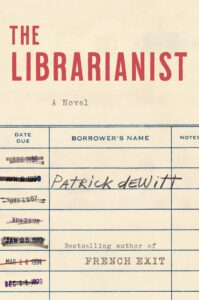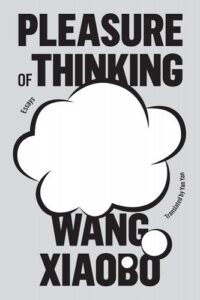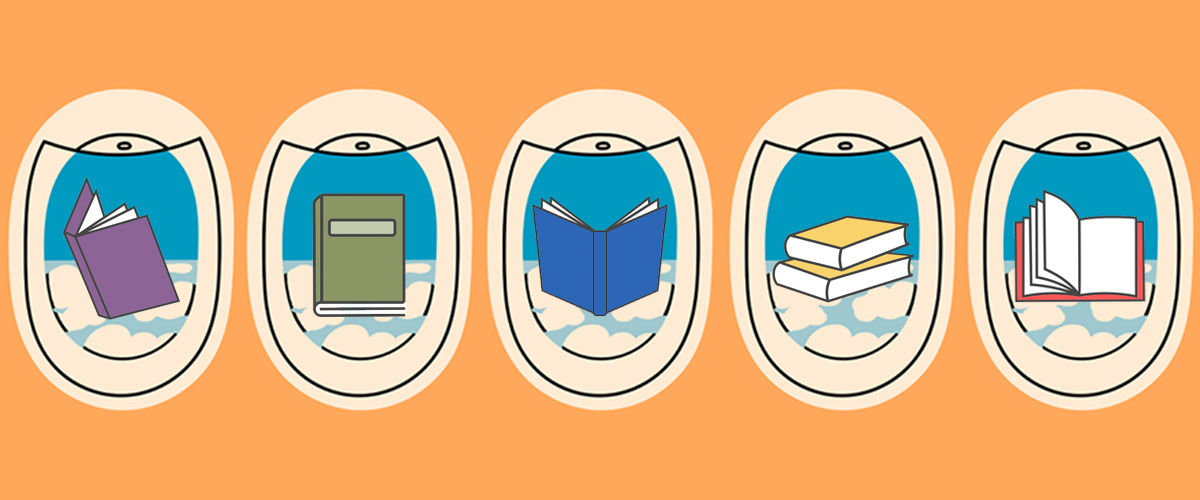
Lit Hub’s Most Anticipated Books of 2023, Part Two
166 Titles We’ll Be Reading in the Second Half of the Year
Somehow, the year is already half over—time flies when you’re reading good books. Now that it’s July, the Literary Hub staff is looking forward to all the books coming out in the rest of 2023—from fiction to nonfiction to poetry.
JULY
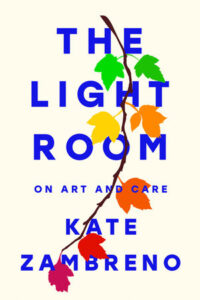
Kate Zambreno, The Light Room
Riverhead, July 4
When Annie Ernaux says you’ve captured a new form—“a kind of absolute present, real life captured in closeup”—you know you’re doing something right. And so says the Nobel Laureate of Kate Zambreno’s latest, a memoir about parenting and creating art through the precarity of a pandemic and climate change. I did not parent through a pandemic (I do not parent at all), but that didn’t prevent me from appreciating Zambreno’s wise, multifaceted musings about isolation and nature, making art and making humans. –Eliza Smith, special projects editor
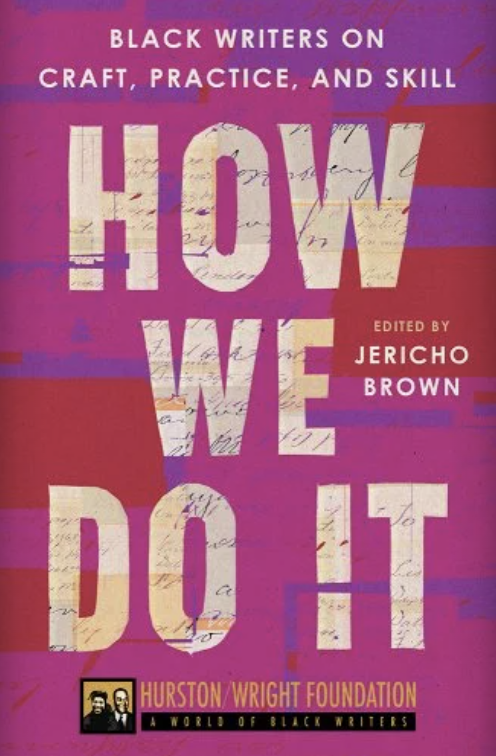
Jericho Brown, How We Do It: Black Writers on Craft, Practice, and Skill
Amistad, July 4
As previously recommended: It’s right there in the title. Poet Jericho Brown has assembled an all-star lineup of Black writers holding forth on the nature of their art and how it relates to who they are in the world. With writers like Rita Dove, Camille T. Dungy, W. Ralph Eubanks, Angela Flournoy, Nikki Giovanni, Terrance Hayes, Mitchell S. Jackson, Barry Jenkins, Jamaica Kincaid, Jacqueline Woodson, and many more, this collection is for anyone who’s ever tried to put thought and feeling into words. –Jonny Diamond, Editor-in-Chief
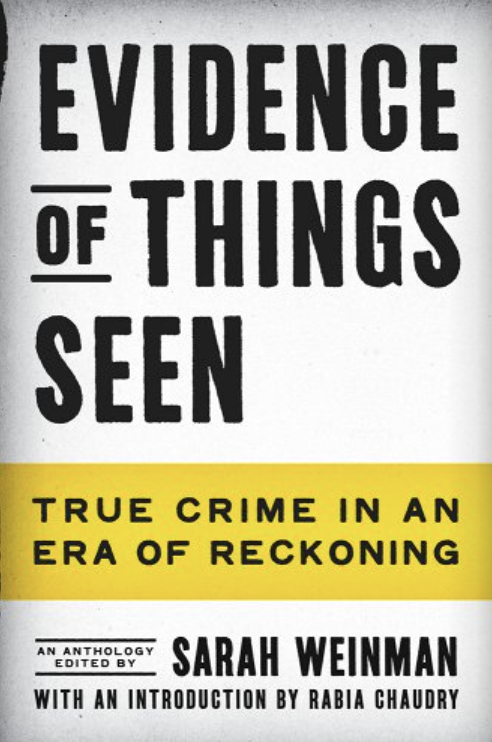
Sarah Weinman, Evidence of Things Seen: True Crime in an Era of Reckoning
Ecco, July 4
As previously recommended: The last decade has seen true crime as a genre—be it audio, in print, or on screen—grow into a billion-dollar industry, as demand for digestible, narrativized accounts of humanity’s darker side has proven bottomless. But with money to be made, standards inevitably drop… So how do we distinguish between the exploitative sensationalists and the thoughtful reporters? Luckily we have Sarah Weinman’s new anthology, as good a starting place as any for the best in true crime, featuring writers like Wesley Lowery, Justine van der Leun, May Jeong and more, who get to the bottom of the story without scraping the bottom of the true crime barrel. –JD
PATRICK DEWITT, THE LIBRARIANIST
ECCO, JULY 4
As previously recommended: Full disclosure: I will read anything Patrick DeWitt writes. The Sisters Brothers is one of the funniest novels in recent memory, and French Exit was purely, and darkly, delightful. So, though my buy-in was all but guaranteed, and The Librarianist—which tells the story of a retired librarian who tries to inject meaning into his newly wide open days by volunteering at a senior center—seems like a perfect showcase for DeWitt’s wit(t), and for his funny, off-kilter, beautifully human characters. –Jessie Gaynor, Senior Editor
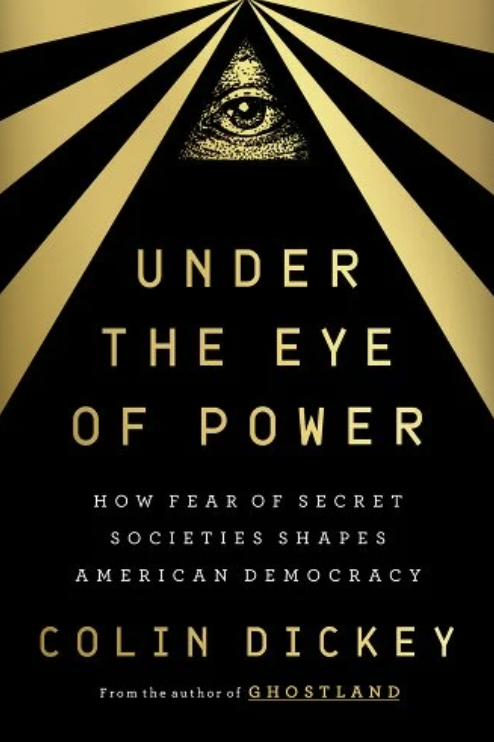
Colin Dickey, Under the Eye of Power: How Fear of Secret Societies Shapes American Democracy
Viking, July 11
As previously recommended: We can think of no better writer than Colin Dickey—who has written beautifully for this site—to examine America’s foundational obsession with conspiracy. From Salem to John Birch to Pizzagate, the “paranoid style” has been a part of this country’s identity long before it was given name by Richard Hofstadter in 1964. But what are we to do when people would rather ascribe their ill fortune to shadowy cabals of powerful puppet masters than the randomness of the universe? For Dickey, the first step is admitting we have a problem. –JD
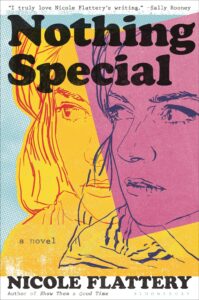
Nicole Flattery, Nothing Special
Bloomsbury, July 11
As previously recommended: A novel set Andy Warhol’s grubby-but-glamorous (at least ostensibly) Factory in which Drella himself barely features, where hedonistic parties are drowned out by the furious clack of typewriter keys, and where Edie Sedgwick and Ondine become tertiary players in the story of two forgotten schoolgirls, Flattery’s coming-of-age debut novel is a bold and brilliant examination of an iconic—and ultimately hollow—movement from the vantage point of its most invisible cogs.
Mae is a disaffected seventeen-year-old New Yorker, searching for an escape from the tedium of school and the claustrophobia of home life, who finds, or believes she finds, purpose in the two-person typist pool of Warhol’s celebrity petri dish (a “doll house, with girls arranged everywhere”). Each day, for eight hours straight, as lithe models lounge nearby, postmortem-ing the previous night’s bacchanal, Mae and another too-odd-for-the-spotlight runaway named Shelly transcribe every word or a mammoth recording that will eventually become Warhol’s experimental “novel,” a, A Novel (1968). The quest for meaning, for immortality, for an antidote to their societal alienation, in this obliterative work is what bonds Shelly and Mae to one another to the bitter end.
I was entranced by this novel. The subversive approach to a familiar modern mythos, the cool-but-crackling dialogue, the knotty psychological portrait of its rescued-and-reimagined protagonist. Between this brava debut, and her weirdly-compelling 2020 collection Show Them a Good Time, Flattery has already established herself one of the most talented and intriguing writers at work in Ireland today. –Dan Sheehan, Book Marks Editor-in-Chief
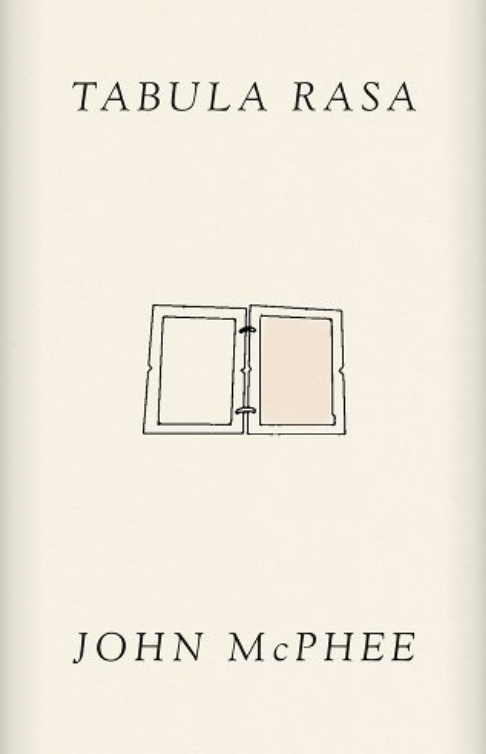
John McPhee, Tabula Rasa (Vol. 1)
FSG, July 11
As previously recommended: John McPhee, often heralded as one of our greatest of nonfiction chroniclers (for good reason), has written about what seems like every imaginable topic, from oranges to Alaskan fur trappers to Wimbledon’s legendary Center Court… But what about all the pieces McPhee didn’t write? Serving as something of answer to that question, Tabula Rasa is a charming compendium of McPhee stories in various states of incompletion, the beginnings and sketches of scores of profiles and wanderings that never quite made it to print. Necessary reading for lovers of serious nonfiction. –JD
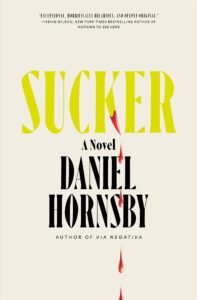
Daniel Hornsby, Sucker
Anchor Books, July 11
As previously recommended: Let Daniel Hornsby invite you into the chum-tank for a rollicking Silicon Valley tech satire in his novel Sucker. Charles Grossheart is a failson with past dreams of punk music production who has stumbled into the orbit of Olivia, an Elizabeth Holmes tech-type who has a “pet forest” in her company’s headquarters, and is working on a project to solve cancer, or mortality, or humanity generally, walking around charismatically with her bald head in remission, swathed in layers of sweaters: her signature look. Needless to say, the motivations at work are darker than at first they seem; this is a parable of vampire capitalism with a room full of deformed monkeys to answer to.
Most importantly, it’s very funny—more Total Recall than Neuromancer, with nods to David Graeber and Joshua Ferris—and Hornsby has a knack for pillorying the vast industries of bullshit that dominate America c. 2023. “I just think the obsession with climate change is so shortsighted,” says one tech-poseur, and perhaps the most damning part of the book is the way poets are folded into the disruption process and housed in a corporate Art Barn. Let Hornsby set us free! –Janet Manley, contributing editor
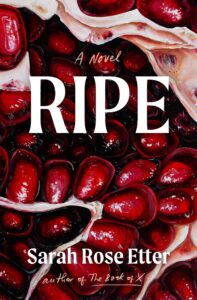
Sarah Rose Etter, Ripe
Scribner, July 11
As previously recommended: Millennial, anti-capitalist malaise-lit isn’t exactly new at this point, but Ripe, while all of those things, manages to skewer workplace politics and the vacuousness of modern existence in a way that makes it feel like a fresh subject. Cassie works in the classic dead-eyed field of technology in Silicon Valley, each day spent working for a morally-vacant company, each day increasingly severing herself from her true personhood, cleaving herself into two beings: the fake, cheery self at work, and the real self, who does cocaine every night by the light of the refrigerator and feels a black hole devouring herself from her center.
Sarah Rose Etter captures the cruel facts of San Francisco well: the dystopia that that eden-like setting has turned into. As Cassie watches the sun set over the water from the train, pink and light and heavenly, a man asks her for a dollar and she refuses. Maybe Etter’s not saying anything radical, but every reminder of the daily cruelties of life in this city (not that it’s just there), and our own complicity in it, is sickening. There’s more to come, more we can’t look away from: things at work take an illegal turn, an unplanned pregnancy occurs, suddenly everything feels very delicate, like one wrong move could shatter the illusion of a life, and the truth is, it probably can. –Julia Hass, Contributing Editor
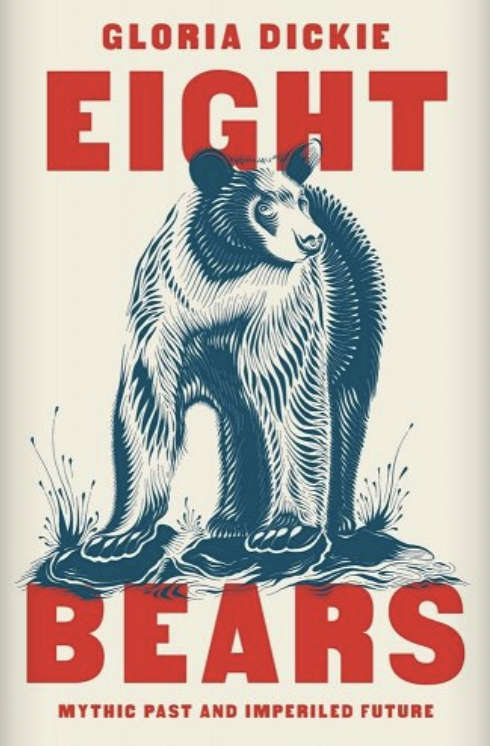
Gloria Dickie, Eight Bears: Mythic Past and Imperiled Future
W.W. Norton, July 11
As previously recommended: How many of the eight extant bear species can you name? The first four aren’t all that hard (think about it), but unless you know, the last four are… tough. Give up? Sorry, you’re just going to have to read nature writer Gloria Dickie’s sprawling travelogue about ursine life on planet earth. Not only does Dickie go in-depth on the latest efforts to save habitat for the eight species, she unpacks the history of each species in relation to humans, from myth to fairy tale to urban legend. As both ecological wake-up call and cultural deep dive, Eight Bears is an important document of what we have, and what we stand to lose. (Ok, fine: Polar, Panda, Black, Brown, and… Asiatic Black, Spectacled, Sloth, Sun.) –JD
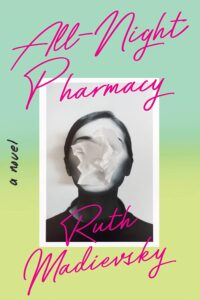
Ruth Madievsky, All-Night Pharmacy
Catapult, July 11
As previously recommended: All-Night Pharmacy feels like reading the diary of your most off-the-rails friend— the one who’s so unpredictable that it’s almost frightening to be around her, but so fun and endearing that you would never leave her side. The friend who you’re always surprised to hear from on Monday because you were certain she died over the weekend.
The book begins with our unnamed narrator following her older sister, Debbie, into a divey LA bar, and from there the novel unravels at a breakneck pace, flying nonstop down a steep street until the final page. Along the way, Debbie goes missing, our narrator falls into a pill addiction, our narrator is helped out of her pill addiction with the help of a hot psychic, gay things happen (yes, with the hot psychic), trips to the former Soviet Union are taken, an iguana is begrudgingly adopted, family trauma is unearthed, and the bonds of sisterhood are questioned.
The book covers about a year in our narrator’s life as she navigates sobriety, queerness, trauma, healing, and family. It doesn’t shy away from the difficult moments, the unexpected moments, the sexy moments. It’s a book about how hard it is to be a person, how it feels to navigate a life. –McKayla Coyle, Publishing Coordinator
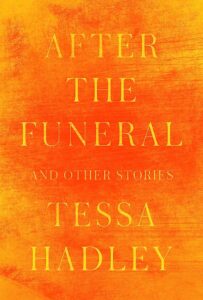
Tessa Hadley, After the Funeral and Other Stories
Knopf, July 11
Tessa Hadley writes the kind of books that many people think are easy to write—we’re overrun with domestic novels about relationships, family, tragedy, life complications, the kind of events and dynamics that everyone has experience with. But Hadley, unlike most people, has the ability to evoke the depth and complexity that life truly holds. After the Funeral—a collection of short stories about siblings, about aging, about death, about obsession— promises to be no different. –JH
ANDREW LIPSTEIN, THE VEGAN
FSG, JULY 11
As previously recommended: I inhaled Andrew Lipstein’s debut novel Last Resort (which just came out in 2022, damn him), a book about storytelling and greed and New York and artistic ownership, so I’m eagerly anticipating his next, which seems to be equally invested in asking questions about the murky nature of morality in our modern world. Andrew Martin called it “a feverish, fantastically surprising parable about guilt, money, and (curveball) the lives of animals,” and writes that it “reads like the unholy offspring of Saul Bellow’s Seize the Day and Julio Cortázar’s cosmic short fiction, or Crime and Punishment for the Brooklyn brownstone set,” which is about as good a blurb as you could get. –Emily Temple, Managing Editor
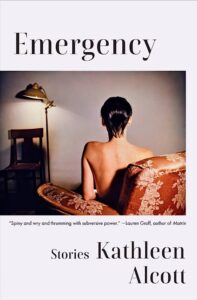
Kathleen Alcott, Emergency: Stories
Norton, July 18
I’ve been pressing Kathleen Alcott’s most recent novel—the multigenerational epic America Was Hard to Find—into the hands of as many people as I possibly can over the past four years. I consider it to be one of the finest works of American fiction of the 21st century, and its omission from 2020’s list of Pulitzer Prize finalists still rankles. I hope that this exquisite collection, Alcott’s first, brings a host of new readers to her entire body of work. Each of these seven stories—about unmoored women dealing with crises of identity, creeping despair, and the psychic wounds left by corrosive men—is a small marvel: intense, cerebral, and tender. –DS
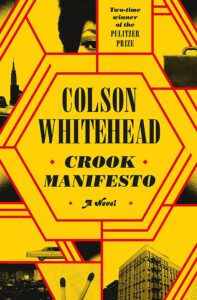
Colson Whitehead, Crook Manifesto
Doubleday, July 18
As previously recommended: Pulitzer Prize winner Whitehead continues his journey through the history of modern New York City, this time taking on the 1970s, as the cast of characters from Harlem Shuffle get swept up in political action, civil unrest, corrupt policing, the rise of Blaxploitation culture, and more. It’s a rich backdrop for Whitehead’s powerful human dramas, and he paints a vivid portrait of people moving between the straight and the crooked world, just trying to get by. –Dwyer Murphy, CrimeReads Editor-in-Chief
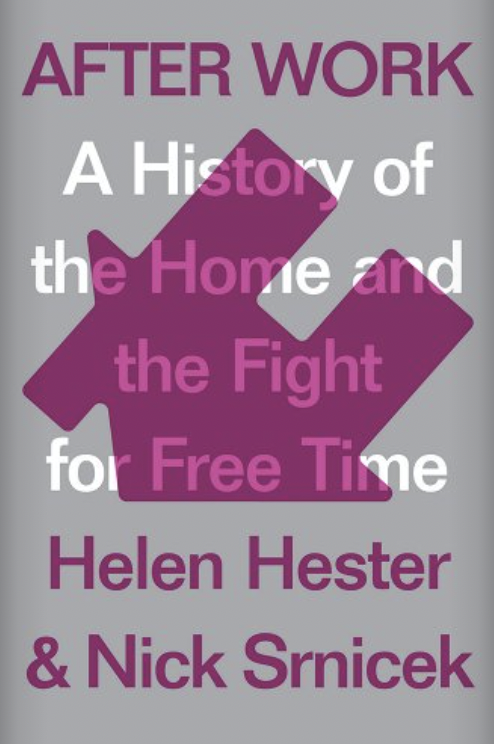
Helen Hester and Nick Srnicek, After Work: The Fight for Free Time
Verso, July 18
As previously recommended: Bookstore shelves are veritably sagging under the weight of corporate-inflected, tech-centric self-help guides to maximizing time or reclaiming time or saving time… But why? What are we doing with all that extra time? This is one of the many questions pondered by Helen Hester and Nick Srnicek in their forthcoming treatise on the nature of so-called free time, particularly as it relates to what we do at home when we’re not working. Obviously, this equation has changed radically in the last few years with the remote work revolution, but Hester and Srnicek take things much further back, looking at the last century of domestic existence, and how the maintenance of the house has become a second job for most of us. The ultimate question, though, that After Work seeks to answer, is how do we change that? –JD
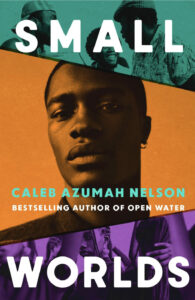
Caleb Azumah Nelson, Small Worlds
Grove Atlantic, July 18
As previously recommended: Azumah Nelson’s follow up to Open Water, his multi-award-winning 2021 debut, is an ode to the West African immigrant community in London, a coming-of-age tale of young love and yearning, and a quietly powerful meditation on intergenerational conflict and trauma. Stephen, a first-generation Londoner born to Ghanaian parents, is a budding trumpeter in deep (and lyrical) love with his orphan bandmate Del, with the transporting power of music and dance, with the little moments of wonder he sees each day in his Peckham community.
Over the course of three summers, we follow Stephen from London to Accra and back again as he deals with the consequences of a major life pivot, and the rift it opens between himself and his more traditionally minded father. Small Worlds is an achingly tender, exquisitely rendered portrait of a truly beautiful soul. –DS
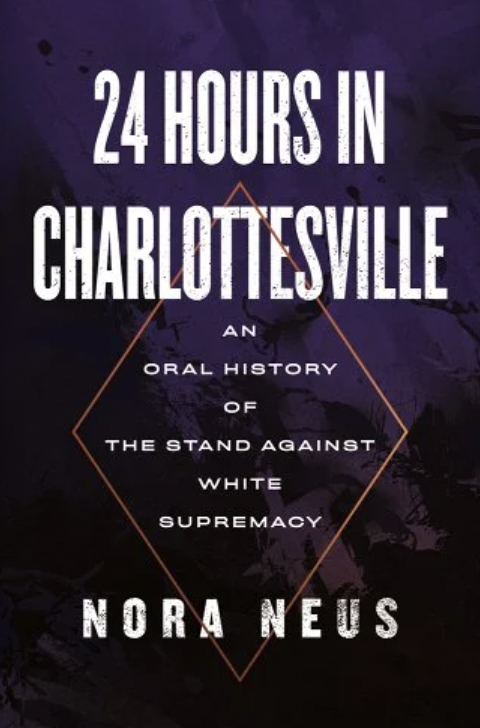
Nora Neus, 24 Hours in Charlottesville: An Oral History of the Stand Against White Supremacy
Beacon Press, July 18
As previously recommended: We seem to live in an era of great forgetting. Events that would have been era-defining 20 years ago now come and go like so many digital headlines, explained away by conspiracy theorists and ideological denialists as just more fake news. That’s why books like Nora Neus’s 24 Hours in Charlottesville are so important, particularly as the very history we teach in public schools is at risk of disappearing altogether. So, a reminder: in August of 2017 a horde (a khaki? a basement? a whine?) of neo-Nazis descended on Charlottesville, Virginia to chant racist slogans and buy out the local tiki torch supplier. But for all their deeply embarrassing posturing, the weekend was no joke: As Neus’s gripping account reminds us, based as it is on multiple first-person accounts, the events of that weekend led up to the tragic murder of anti-racist activist Heather Heyer at the hands of an unhinged white supremacist. This is America, and we cannot forget it. –JD
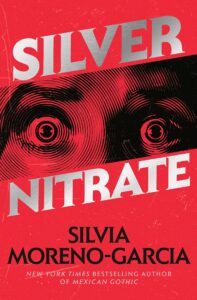
Silvia Moreno-Garcia, Silver Nitrate
Del Rey, July 18
As previously recommended: Both of Silvia Moreno-Garcia’s parents worked in radio, so perhaps that’s part of the inspiration behind this bonkers ode to sound engineering and the (literally magical) power of the human voice. Silver Nitrate features a sound editor and a has-been actor as they befriend an elderly icon from the Golden Age of Mexican cinema, only to find themselves drawn into a vast conspiracy to harness the magic of the silver screen and bring an occult-obsessed Nazi back from the dead. This book has everything, and I could not recommend it enough! –Molly Odintz, CrimeReads Senior Editor
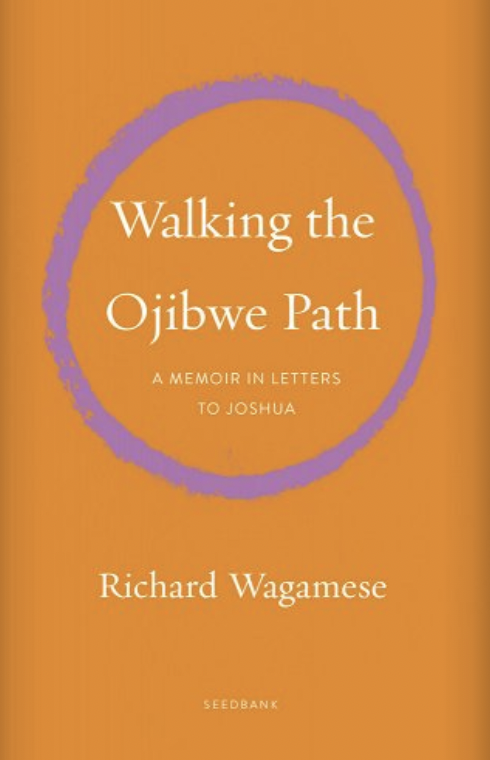
Richard Wagamese, Walking the Ojibwe Path: A Memoir in Letters to Joshua
Milkweed, July 18
As previously recommended: The late Richard Wagamese’s 2012 novel, Indian Horse, is one of the great underrated works of fiction of the 21st century (and though its concerns are much broader, it should also be in conversations about the all-time best sports novels). Walking the Ojibwe Path is a collection of letters that Wagamese—who died in 2017—wrote to his estranged six-year-old son, Joshua, in accordance with the Ojibwe tradition that calls fathers to guide their children through the world. For Wagamese, that means being open and honest about his own troubled path through life, from being separated at an early age from his family, to struggles with substance abuse, to incarceration, to his eventual rebirth as the teller of his own story. There are lessons in this book for all of us. –JD
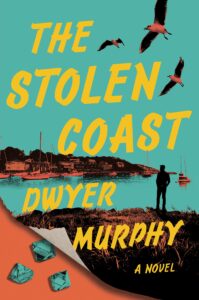
Dwyer Murphy, The Stolen Coast
Viking, July 18
As previously recommended: Look, if it’s a heist novel, I’m probably going to read it. But if it’s a heist novel set on the New England coast featuring retired spies, disenchanted lawyers, and diamond thieves, I’m probably going to enjoy it. If it’s a novel featuring all those things and it’s written by Dwyer Murphy, I’m probably going to love it.
Now, you might be thinking, “Dwyer Murphy is your boss” and yes that is true. But I would not have volunteered to endorse this book if I weren’t also such a fan. His previous novel, An Honest Living, a literary Chinatown-inspired PI mystery about rare books set in fading, post-millennium New York City, was an absolute delight. I’d say I tore through it, but that’s too aggressive a description for what is one of the most tranquil reading experiences I’ve ever had.
Dwyer’s prose is direct and straightforward, but with an air of the fanciful. He is a watercolorist when it comes to genre and style—the allusions and frameworks are all visible, but he doesn’t lay them on thick. He lets everything softly, gently blend together—a bit wistfully, a bit meditatively. His heroes are wandering thinkers, navigating bustling modern worlds and finding romance in them, too. I can’t think of a better combination for Dwyer’s stylings than a heist novel set along the misty, craggy seaside. In short, I cannot wait for The Stolen Coast. –Olivia Rutigliano, CrimeReads Associate Editor
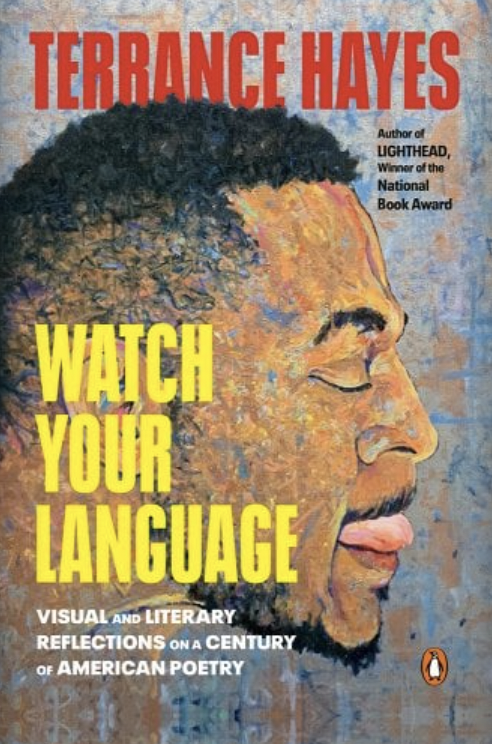
Terrance Hayes, Watch Your Language: Visual and Literary Reflections on a Century of American Poetry
Penguin Books, July 25
As previously recommended: When one of America’s great poets assembles his poetic origin story in a collage-like collection of mini essays, illustrations, prose fragments, and assorted feuilletons of a life in poetry, it behooves us all to pay attention. In examining his own path to poetry, Terrance Hayes also manages to excavate a century of nearly forgotten African American poets, reminding us all of the very narrow poetic canon that predominates to this day in the academy. Essential reading. –JD
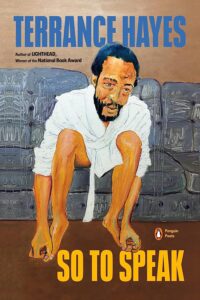
Terrance Hayes, So to Speak
Penguin Books, July 25
A new collection by National Book Award winner Terrance Hayes is a Poetry Event. All the more reason to celebrate: His seventh collection will be published simultaneously with Watch Your Language, a work of (illustrated) literary criticism. Hayes’ poems never fail to play, thrillingly, with the constraints of form, and they engage with culture, past and present, while remaining deeply rooted in the personal. Don’t miss this one. –JG
Wang Xiaobo, tr. Yan Yan, Pleasure of Thinking: Essays
Astra House, July 25
Previously untranslated essays from celebrated Chinese novelist and thinker Wang Xiaobo, who died in 1997, make up a collection described by the publisher as “as riotous as it is contemplative…examin[ing] modern life with the levity missing from so much of today’s politico-cultural discourse.” Dive in if you dare! –ET
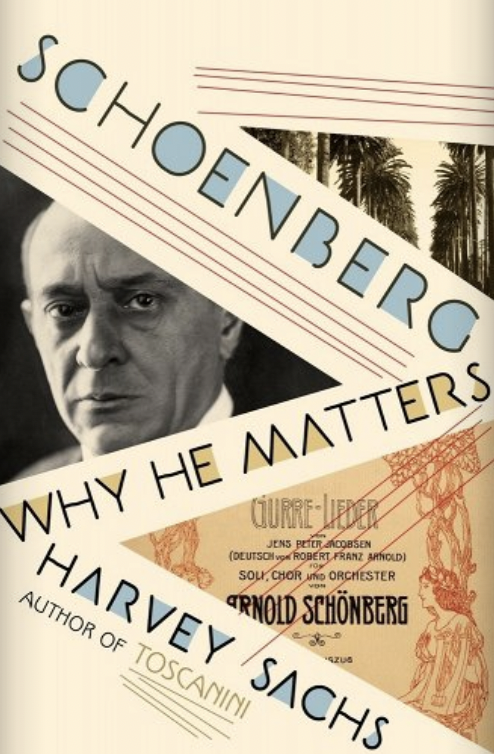
Harvey Sachs, Schoenberg: Why He Matters
Liveright, July 25
As previously recommended: Arnold Schoenberg is not an easy listen. The frowny father of the 12-tone musical system revolutionized so-called classical music with his complex, superficially dissonant compositions. Schoenberg caused an enormous stir in the 1920s with his studies in atonality, music that put the burden on audiences to think through what they were listening to.
But as a Viennese Jew, his angular compositions were readily labeled degenerate by the Nazis, and Schoenberg soon made his way to America where as a teacher and composer he would have a huge influence on a generation of post-war avant garde musicians. But as Harvey Sachs recounts, Schoenberg’s music gradually fell out of style, to a point where it’s hardly ever performed—and for Sachs, that’s a problem. Why He Matters makes the case for Schoenberg’s importance in the avant garde canon, arguing that anyone who cares about 20th-century classical music needs to care about Arnold Schoenberg. –JD
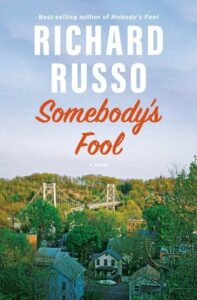
Richard Russo, Somebody’s Fool
Knopf, July 25
The latest novel from the Pulitzer Prize winning author of Empire Falls and Straight Man (one of the best campus novels in recent history, recently adapted into a series starring Bob Odenkirk), completes the North Bath trilogy begun with Nobody’s Fool in 1993. A good excuse to start exploring Russo’s work if you haven’t yet! –ET
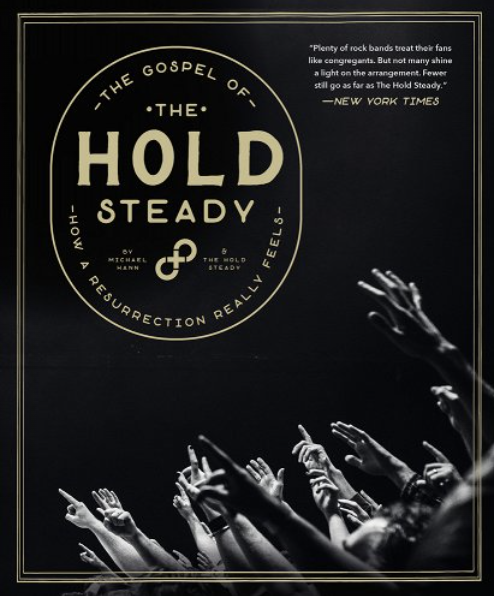
Michael Hann, The Hold Steady, The Gospel of The Hold Steady: How a Resurrection Really Feels
Akashic Books, July 25
As previously recommended: There’s a very short list of contemporary American songwriters who would also make wonderful short story writers and The Hold Steady’s Craig Finn is on it. As virtuosic chroniclers of a Midwestern demimonde that gives lie to the pervasive myth of the wholesome heartland, The Hold Steady has earned its place as one of the great American rock bands of the 21st century. And now, in The Gospel of The Hold Steady, the storytellers will have their story told, through essays, firsthand oral histories, and over 200 photographs. A must-have for both Hold Steady diehards and rock and roll fans of all persuasions. –JD
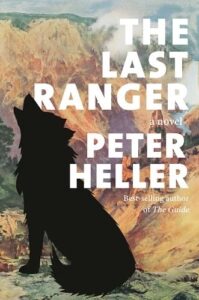
Peter Heller, The Last Ranger
Knopf, July 25
From the bestselling author of The Dog Stars and The River comes a novel about a Yellowstone National Park ranger who chases down poachers and wrangles tourists, until he becomes embroiled in a mysterious range war. The result is, as the publisher describes it: “a portrait of the American west where our very human impulses–for greed, love, family, and community–play out amidst the stunning beauty of the natural world.” –ET
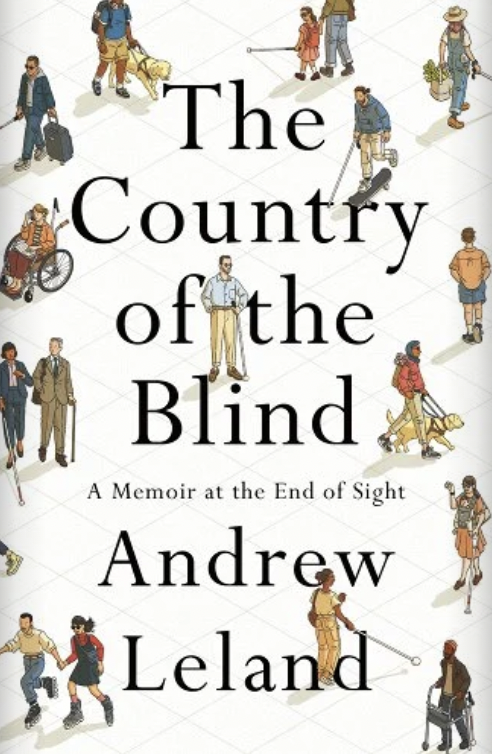
Andrew Leland, The Country of the Blind: A Memoir at the End of Sight
Penguin Press, July 25
As previously recommended: As a teenager, Andrew Leland was diagnosed with retinitis pigmentosa, a rare eye disease that results in progressive vision loss over the course of years or decades. Now, at midlife, Leland embarks on a journey to understand the cultural history of blindness and where he fits into it. What follows is a moving and fascinating account of the blind community—its politics, customs, and pioneers—and a personal exploration of making a sometimes frightening, sometimes invigorating life transition as a writer, husband, and father. A brilliant investigative memoir written with humor and heart. –ES
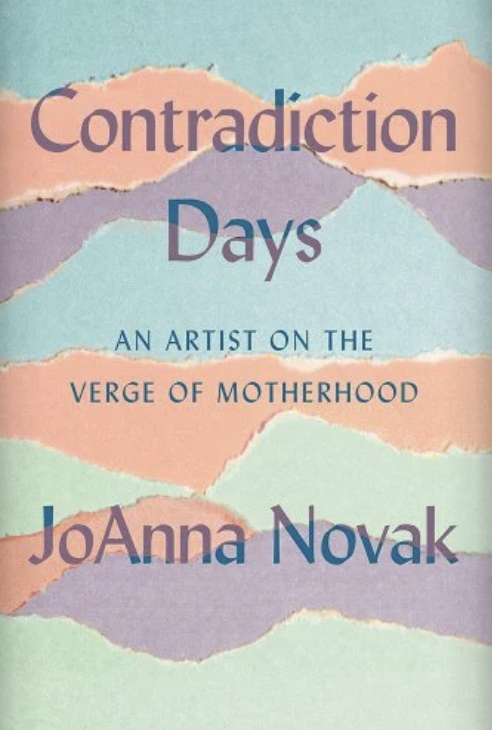
JoAnna Novak, Contradiction Days: An Artist on the Verge of Motherhood
Catapult, July 25
As previously recommended: We’re big fans here at Lit Hub of JoAnna Novak’s poetry, which is intense, often unexpectedly discursive, and most certainly always unflinching. It is this last quality that Novak brings to bear on her memoir, Contradiction Days, in which she recounts a harrowing month midway through her pregnancy when, appalled by her doctor’s reaction to her depression, she instead looks to the artist Agnes Martin to help navigate the darkness. And by look, we mean mirror, as Novak heads to Taos to live as Martin did: no phone, no email, no contact with her husband, total solitude. What follows for Novak is a series of revelations about her work, her body, and what it is to be both artist and mother. –JD









